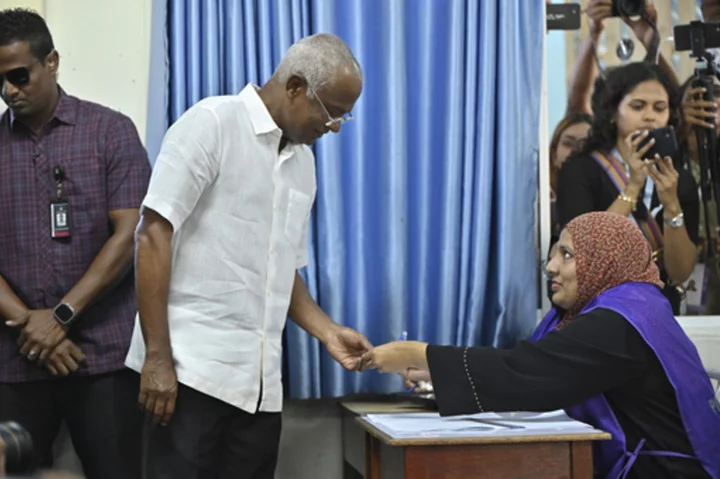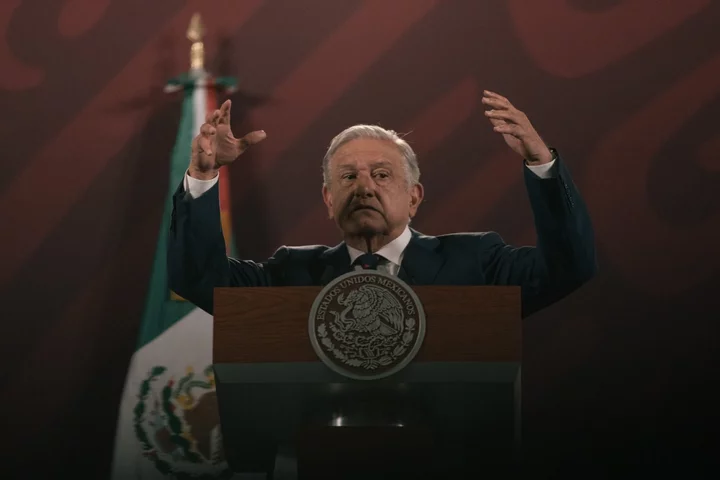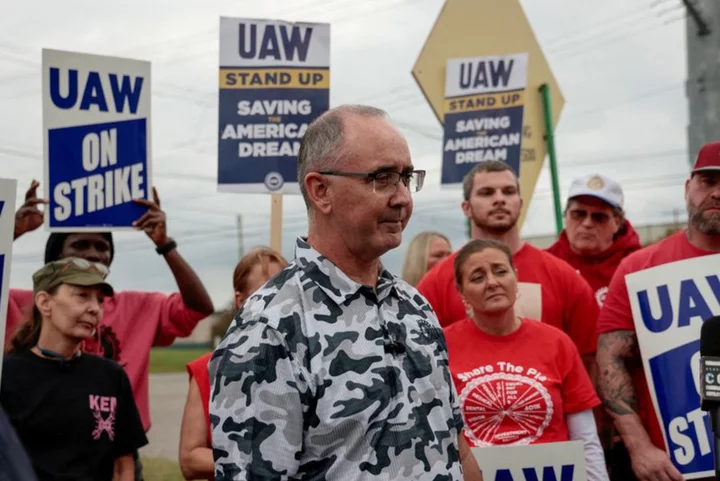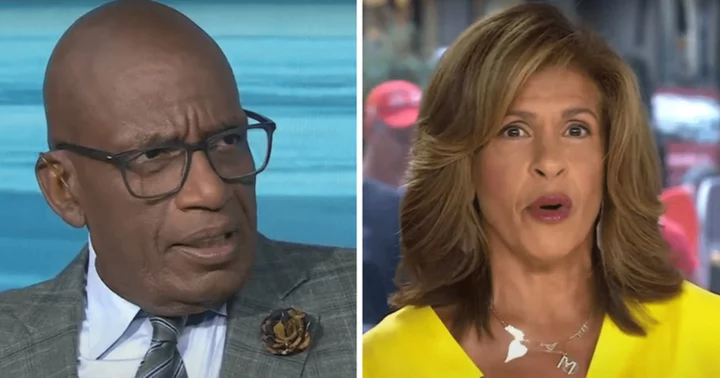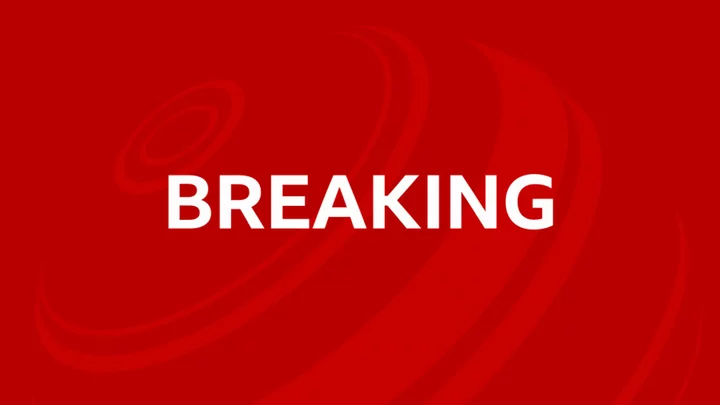Israel's Supreme Court is having a busy month hearing challenges to actions by the government of Benjamin Netanyahu.
Within one month it will have heard arguments on three cases -- including, this Thursday, petitions on one that affects Netanyahu most personally: an amendment making it more difficult to declare a prime minister unfit for office.
The law states that only the prime minister himself or the cabinet, with a two-thirds majority, can declare the leader unfit, and only "due to physical or mental incapacity." The cabinet vote would then need to be ratified by a two-thirds majority in the parliament, known as the Knesset. The amendment is a change to one of Israel's Basic Laws, the closest thing the country has to a constitution.
The amendment was passed before legislation started on a judicial overhaul package, pushed by Netanyahu's right-wing government, that has split the country and led to months of protests by those who argue that it chips away at Israel's democracy and weakens its judiciary.
The petitioners in Thursday's hearing argue the amendment was passed solely for Netanyahu's benefit -- he faces an ongoing corruption trial -- making it a "misuse of constituent authority." That's one of the bases on which the Supreme Court can, in theory, strike down amendments to a Basic Law. However, the court has never struck down a Basic Law or an amendment to one.
Earlier this month, the Supreme Court heard arguments about another law, passed in July, that took away its ability to stop government actions justices rule to be "unreasonable." It was also an amendment to a Basic Law. (The third petition is against Justice Minister Yariv Levin, who has refused to convene the committee that chooses judges, amid a dispute over its composition.)
Amir Fuchs, senior researcher at the Israel Democracy Institute's Center for Democratic Values and Institutions, told CNN that never before have there been "so many challenges" in the Supreme Court to amendments to Basic Laws.
"(We've) never had so many hearings in the court so close together. This is a unique and unprecedented constitutional crisis," Fuchs said.
What law was changed?
Until this law was changed, there was no written legislation that dictated how a prime minister could be removed from office for being "unfit" to serve, although Fuchs said there was some precedent with case law that indicated the attorney general could make that ruling.
"I do believe we did have a flawed arrangement before. It was too vague. It demanded an amendment," Fuchs said. "But it's very clear that the motive for this law was totally personal."
That's because there were petitions to declare Netanyahu unfit to serve because of his ongoing corruption trial. He is the first sitting Israeli prime minister to appear in court as a defendant, on trial for charges of fraud, breach of trust and bribery. He denies any wrongdoing.
As part of a deal with the court to continue serving as prime minister despite his ongoing trial, Netanyahu in 2020 agreed to a conflict-of-interest declaration.
The attorney general determined at the time that the declaration meant Netanyahu could not be involved in policy making that affects the judicial system -- like the judicial overhaul. Certain aspects of the overhaul, Netanyahu's opponents have argued, could make it much easier for him to get out of the corruption trial.
Earlier this year, when Justice Minister Levin announced the government's plans for a judicial overhaul, Netanyahu said his hands were tied and he couldn't get involved because of the conflict-of-interest declaration.
But in March, hours after the amendment making it more difficult to declare a prime minister unfit for office was passed, Netanyahu announced he was getting involved.
"Until today, my hands have been tied," the prime minister said at the time. "We have reached an absurd situation in which if I'd intervened (in the judicial overhaul legislation) as my job required, I would have been declared unfit to serve ... Tonight I inform you: Enough is enough. I will be involved."
What happens in the hearing?
A preliminary hearing with three judges has already been held on this case. On Thursday, arguments will be heard again, this time in front of 11 of the 15 Supreme Court justices.
Normally the attorney general would put forward the government's case in a Supreme Court hearing, but AG Gali Bahrav-Miara will not. She agrees with petitioners that the amendment should not stand, as she did earlier this month during the hearing on the "reasonableness" law.
The justices could strike down the amendment, declaring that the parliament carried out a "misuse of constituent power," Fuchs said. That would be for passing legislation not for general purposes but for political purposes, to benefit a specific individual: Netanyahu.
Fuchs noted that the timing of the bill -- raised and passed within just a few weeks -- and on the record comments made during the discussions of the bill in parliament made it clear the purpose of the law was to protect Netanyahu.
The Supreme Court could also declare that the law "is not active right now," and would only be active once the next parliament takes over. That could be a way out of a thorny constitutional situation.
"It takes away most of the problem because once you decide it's only active next Knesset, it means it won't solve any personal problem for Netanyahu and it gives time for the Knesset to re-think the arrangement," Fuchs said.
The court decision must be made no later than January 12, 2024, due to the retirements of judges hearing the case.
What other challenges to the Israeli government's judicial overhaul is the Supreme Court hearing?
The court must also decide by then on the petition against the law that struck down the court's ability to declare government actions "unreasonable." That is considered a much bigger challenge, and one where, for the first time, all 15 of the current Supreme Court justices took the case. The ruling on that petition is expected to take longer than the one being heard on Thursday.
Additionally, the Supreme Court is due to hear a challenge to the justice minister delaying convening the committee to select new Supreme Court justices. Netanyahu's government wishes to re-formulate how justices are selected in Israel to give politicians more sway.
The committee was supposed to meet last week, but Levin postponed the meeting.
"It's very important even though it is [an] administrative issue, not a petition against a basic law," Fuchs said of the challenge, since Levin could be ordered to follow a court ruling on an essential element of the judicial overhaul.
But the real crisis could come after the Supreme Court issues all three rulings, Fuchs said, if Netanyahu and his government choose to defy them. Despite repeated questions from CNN among others, he has yet to commit to following them.
"This is in the hands of the government because they can accept the decision. Even though (Netanyahu is) avoiding the question on whether he will abide by the decision, doesn't mean he won't," Fuchs said.



